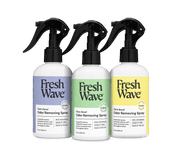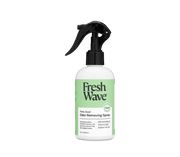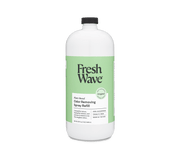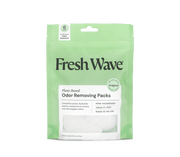Time goes by, and the seasons change, and with them, the scents and odors that accompany our lives, both indoors and outdoors. The change from summer to fall is a particularly striking one. The smells of freshly cut grass are no longer with us as the cooling weather slows growth and barbeque odors no longer fill the evening air.
Instead, the air is filled with a crisp, sharp smell that reminds us of returning to school as a child and enjoying the last warmth of the sun before winter sets in. This smell is actually the product of rotting leaves and vegetation beginning to die off before winter. While it might bring up pleasant memories, many people can have allergic reactions to it. Some unpleasant smells may also start to creep into our homes; fall can often bring wet weather, which can make garages and basements smell musty and damp.
Inside, our activities change, too, as do the smells associated with them. The smells of fruity summer drinks, ice cream and sun lotion disappear. Now, it’s time for baking smells and the odors of the foods that are being harvested, such as pumpkins, apples and carrots. So, if you enjoy the smells of fall, there are a few essential odors you might want to bring into your home.
Best Essential Oils for the Fall
To bring your home the essential fall smell, you can use essential oils to mimic the smells of baking and the outdoor aromas that accompany the season. The best odors to accomplish this are:
- Cinnamon is a warm, fruity and slightly peppery smell that reminds us of baking, as it’s often used in seasonal pies, such as apple or blackberry.
- Nutmeg gives off an earthy smell with hints of sweetness and spice. It’s used for a more oriental spiciness that is a little more subtle than nutmeg.
- Clove is another spicy scent that reminds people more of the festive season as it’s used in holiday favorites like mulled wine. However, it works well as a fall scent too.
- Ginger gives a pungent, spicy scent that is quite refreshing. It’s also another smell associated with baking.
- Cedarwood gives an earthy smell with hints of citrus. Some say it smells like pencil shavings, which is a scent that reminds us of going back to school in the fall.
- Orange smells sweet and citrusy and gives the feeling of cleanliness, but without the sharpness of lemon.
- Eucalyptus gives off a sharp smell that is almost minty. It smells refreshing and clean and makes us think of cool fall mornings.
- Frankincense has a complex smell that is simultaneously woody, earthy, soft, sweet and citrusy, combining many of the elements of that fall feel.
Best Essential Oils for the Fall Allergies
While most of us associate allergies with the summer, fall comes with its own selection of natural allergens. Ragweed is the biggest of these, beginning to bloom in August and sometimes lasting through to November. Its pollen can travel hundreds of miles on the wind, so even if you can’t see any locally, you could still feel its effects. Mold spores can be another trigger for allergies. As the weather becomes cooler and damper, it begins to spread in the dark corners of homes.
Luckily, there are a few essential oils that can lessen the symptoms of allergies. These include:
- Blend of sandalwood, frankincense, and ravensara oil — this particular blend is used to relieve symptoms such as an itchy and runny nose, blocked nasal passages and sneezing. You can either mix it with a carrier oil like sweet almond oil to apply to the skin or diffuse it into the air.
- Eucalyptus is an anti-inflammatory and can be used to relieve the itchiness that some allergies can cause in the eyes and nose and lessen feelings of congestion. It can be sniffed directly from the bottle or diffused into the air.
- Tea tree oil and peppermint — these two oils also have anti-inflammatory properties, and the sharp minty smell you get combining them also helps with congestion. Use together or individually by diffusing into the air.
- Lavender has many benefits as an aromatherapy oil. Its ability to calm and soothe inflammation can be helpful with allergies. As well as using it in a diffuser, you can add lavender oil to a hot bath to gain its benefits.
It should be noted here that some of these oils can, on occasion, also trigger allergies, and essential oils should never be ingested.
Odor Eliminating Power From Natural Plant Oils
If you have any lingering offensive smells in your home this fall or simply want to enhance your home’s atmosphere with an extra touch of fall odors, check out Fresh Wave. Our odor eliminators don’t just mask bad smells; they eliminate them altogether. Firstly, the blend of natural plant oils attracts the odor molecules. They then attach to the molecules and surround them before finally removing them with a chemical reaction.Rather than using harsh artificial chemicals to accomplish this, at Fresh Wave, we use natural plant oils from lime, pine, clove, cedarwood and anise, suspended in water rather than harsh alcohols. We absolutely never use CFCs or any other chemicals harmful to the environment.









